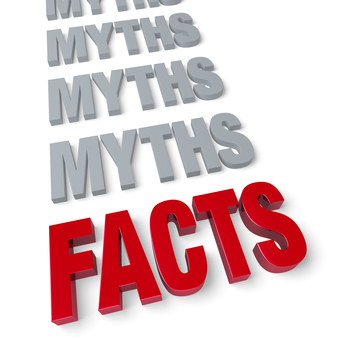Is Resveratrol Dead?
Author: Dr. Stephen Chaney
 It seems like just a few years ago that the headlines were proclaiming that resveratrol, a polyphenol found in red wines, grapes and chocolate, was the latest “super nutrient”. It was going to make you younger, smarter and healthier. You probably knew that all of the claims being made at the time could not be true.
It seems like just a few years ago that the headlines were proclaiming that resveratrol, a polyphenol found in red wines, grapes and chocolate, was the latest “super nutrient”. It was going to make you younger, smarter and healthier. You probably knew that all of the claims being made at the time could not be true.
But the latest headlines are claiming that resveratrol health benefits are all a myth. Has the resveratrol bubble burst? Was it all just hype?
Before you decide that resveratrol supplements are just a waste of money, let me take you behind the scenes and evaluate the latest study objectively. Let’s talk about what it showed, and didn’t show. But, before we look at the study, let’s review the history of resveratrol.
How Did The Resveratrol Story Get Started?
The resveratrol story started in the 1990’s when Dr. Serge Renaud at Bordeaux University coined the term “French Paradox” to describe the fact that cardiovascular disease incidence was relatively low in the French population despite the fact that they consumed diets high in saturated fat and cholesterol.
People immediately started asking what could possibly explain this discrepancy between the US and French populations? In other words, what could be protecting the French population from their high fat diet? One obviously difference between the French and Americans is that the French consume a lot more red wine – or at least they did before the “French Paradox” publicity turned red wine into a health food. Based on that difference, Dr. Renaud proposed that the French Paradox was due to the high red wine consumption in France.
But, red wine is an alcoholic beverage and overconsumption of alcoholic beverages is a major health problem for many people. And, while alcohol does have some cardiovascular benefits, alcohol consumption was pretty constant across countries.
So the next logical question was what other ingredients in red wine might explain their supposed health benefits. Polyphenols appear to have numerous health benefits, and resveratrol is the major polyphenol in red wine. So resveratrol became the “poster child” for the health benefits of red wine.
Even so, for years resveratrol was a “niche” supplement. It had a loyal following, but it wasn’t a big player in the nutritional supplement market. All that changed in 2009. Dr. David Sinclair at Harvard University had been studying genes that slow the aging process. He had screened thousands of naturally occurring small molecules in hopes of finding some that could turn on those anti-aging genes.
He announced that resveratrol and a few related polyphenols were the most potent activators of those anti-aging genes, and he went on to publish studies showing that resveratrol could help obese mice live longer and lean mice be healthier. All of a sudden resveratrol became a superstar.
But, does resveratrol also work in humans? There are many clinical studies that suggest it does. That’s why I was surprised by the recent headlines proclaiming that the supposed health benefits of resveratrol were myths. So once again, let’s look at the study behind the headlines.
Are The Benefits Of Resveratrol a Myth?
The study behind the headlines (Semba et al, JAMA Internal Medicine, doi: 10.1001/jamainternalmed.2014.1582) followed 783 men and women aged 65 years or older from the Chianti region of Italy for 9 years. None of the participants were taking resveratrol supplements. The investigators estimated resveratrol intake by measuring the concentrations of resveratrol metabolites in the urine.
The investigators measured all cause mortality and the prevalence of heart disease and cancer over the 9 year period and found no correlation between those outcomes and urinary resveratrol metabolites. From those data the authors concluded that “Resveratrol levels achieved with a Western diet did not have a substantial influence on health status or mortality risk of the population in this study.”
The Strengths And Weaknesses of The Study
There are really two important questions – what are the strengths and weaknesses of the study and what does the study actually show?
What are the strengths and weaknesses of the study?
- A major strength of the study was the measurement of urinary resveratrol metabolites rather than relying on the less accurate dietary recall – although it should be noted that the assays used are relatively new and could benefit from further validation.
- The main weakness is that it was a relatively small study in a relatively homogeneous population. Most of the resveratrol consumed by this population came from red wine and even the group with the lowest resveratrol intake was drinking 2-3 glasses of red wine per week (You don’t find many teetotalers in the wine growing regions of Italy).
What does the study actually show?
- The level of resveratrol metabolites in this population directly correlated with alcohol consumption. And, the authors of the study concluded that since the study was done in the Chianti region of Italy, most of the resveratrol came from red wine. So the study actually suggests that red wine consumption has no effect on heart disease, cancer or longevity – in direct contradiction to Renaud’s French Hypothesis.
- The conclusion that the amount of resveratrol one can obtain from diet alone is unlikely to provide health benefits needs to be replicated in a much larger population group with a wider range of resveratrol intakes from a wider variety of foods before it can be considered definitive.
- Even if the amount of resveratrol in food does offer no significant health benefits, that information provides little or no guidance when we consider resveratrol supplements, which generally provide much higher levels of resveratrol.
The Bottom Line:
1) Don’t pay too much attention to the headlines saying that the health benefits of resveratrol are a myth. The study behind the headlines was a small study in a relatively homogeneous population. If anything, it debunked the hypothesis that red wine consumption is responsible for the French Paradox.
2) The study did suggest that the amount of resveratrol one can obtain from diet alone is unlikely to provide significant health benefits. While that may be true, it is irrelevant when considering resveratrol supplements because they provide much higher amounts of resveratrol.
3) The clinical studies on resveratrol supplements are very encouraging, but not yet definitive (see, for example, my “Health Tips From the Professor” article on resveratrol and blood sugar control. That’s to be expected at this stage. It generally takes decades of studies before the scientific community reaches consensus on anything. In the meantime you will continue to see alternating headlines proclaiming the miracles and the myths of resveratrol.
These statements have not been evaluated by the Food and Drug Administration. This information is not intended to diagnose, treat, cure or prevent any disease.

